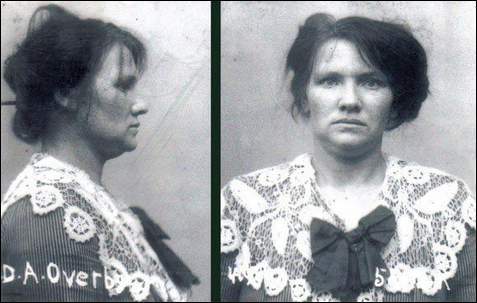The late Poul Fjeldgård, a retired policeman who provided guided tours and lectures on Denmark’s criminal past, shook his head when asked about the new dramatisation of the life of infant serial killer Dagmar Overbye.
In a country where rehabilitation is placed high in the agenda, we rarely hear of criminals being characterised as ‘evil’. But in the case of Overbye, who is believed to have strangled 25 infants – including one of her own – and then burnt their remains in her stove, few would disagree with the diagnosis.
In 2009, Fjeldgård agreed to talk with the Copenhagen Post about Overbye 86 years after her gruesome crimes were discovered – quite by chance – at her apartment in Copenhagen’s Vesterbro district on Enghavevej. A serial killer of this magnitude cannot be wholly forgotten and the story is no easier to understand now than it was then.
Just by chance
One cannot help agreeing with Fjeldgård, however, when he opened a cupboard holding some of the tiny, burnt bone fragments the police found at Overbye’s residence. Perhaps evil cannot be explained.
If the young mother, Karoline Aagesen, had not placed a small classified advertisement in the paper saying she was looking for a family to adopt her new-born, illegitimate daughter in July 1920, if Overbye had not read it and taken the child, and if Aagesen had not regretted her decision the following day and asked to have her baby back, the terrible crimes would not have been discovered.
When Aagesen asked Overbye for her child to be returned, Overbye said she couldn’t remember the address of the family she had given her to. Aagesen found this a little strange, and reported the incident to the police. The police then visited Overbye’s apartment on Enghavevej, where they found first the baby’s clothes and later the remains of her bones and skull in the ashes of the stove.
Overbye was arrested and confessed to the murders of 16 babies, but she was only ever convicted of murdering nine because of lack of evidence. It is believed, though, that she was responsible for killing 25 children, in a terrible story that began some ten years prior, where a young Overbye gave birth to her first child – which died under suspicious circumstances. It is now thought this new-born suffered the same fate as the others.
Sentence to death
Overbye moved to Copenhagen in 1915, and a year later, she was operating a kind of unofficial adoption agency between mothers of unwanted babies and families looking to adopt. The babies, however, never became part of the loving families their mothers dreamt of.
Aagesen testified that she had paid around 200 kroner to Overbye for taking the child and finding her good foster parents, as had the other mothers who had innocently handed over their infants, believing that they were offering them the chance of a better life. For many of whom were live-in servants, the sum was the equivalent of a year’s wages.
Overbye was found guilty of killing all nine infants and sentenced to death, the first woman to have been given the death penalty since 1861. The reigning Christian X, however, commuted the capital sentence to life imprisonment, believing that a modern, enlightened Denmark, such as his did not convict its women to death. Instead, Overbye died in prison in 1929, aged 43.















